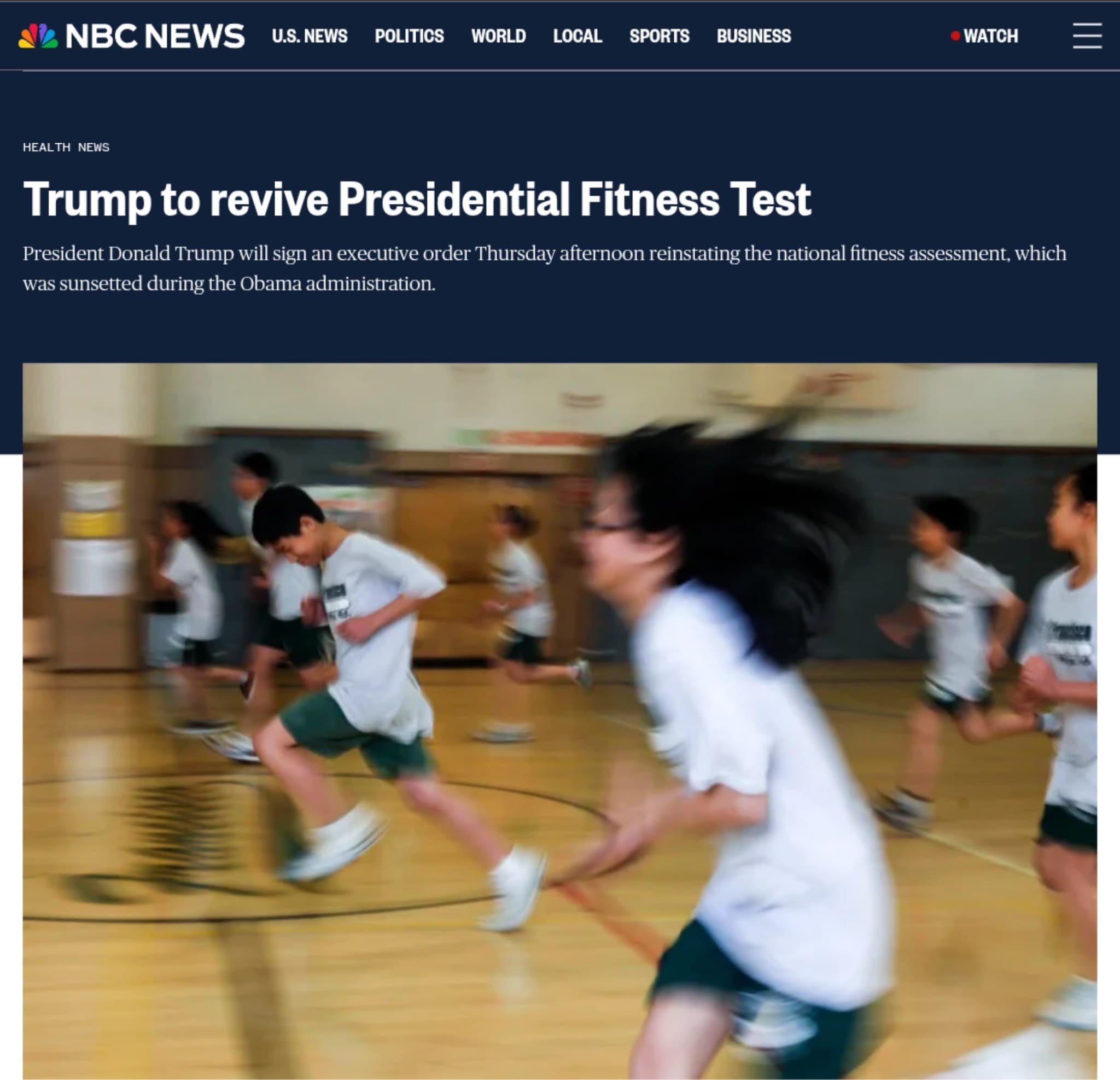Trump Reinstates National Fitness Assessment, Aiming to Boost Youth Health Nationwide
In a significant policy shift, President Donald Trump announced on Thursday afternoon his decision to sign an executive order reinstating the national fitness assessment, a program that was discontinued during the Obama administration. This initiative, aimed at improving physical health among American youth, seeks to address the growing concerns over childhood obesity and related health issues.
Background & Context
The national fitness assessment was originally introduced in the 1950s as a way to measure and promote physical fitness among students across the United States. The program included various physical tests to assess students" strength, endurance, and overall health. It was phased out in 2010 as part of broader educational reforms under the previous administration, which aimed to shift focus toward academic achievement rather than physical performance.
Trump"s decision to reinstate this assessment comes amid a national conversation about the health of America’s youth. According to recent reports, obesity rates among children have reached alarming levels, prompting healthcare professionals and educators to call for renewed efforts to encourage physical activity. The reinstatement of this assessment is seen as a critical step in fostering healthier lifestyles among children and adolescents.
Key Developments
During the announcement, President Trump emphasized the importance of physical fitness in shaping the future of American children. "We need to ensure that our youth are not only academically prepared but also physically fit," Trump stated. "This program will help schools implement fitness assessments that encourage students to engage in regular physical activity."
Education Secretary Betsy DeVos, who was present at the signing, echoed the President"s sentiments, highlighting that schools will be encouraged to integrate fitness assessments into their curricula. "This will not only help in identifying students who may need additional support in their physical fitness but also promote a culture of health and wellness in our schools," she added.
Broader Impact
The reinstatement of the national fitness assessment could have far-reaching implications for educational institutions and public health initiatives. Experts in public health have applauded the move, suggesting that it could lead to increased awareness of the importance of physical fitness in schools. "This is a proactive measure that can potentially reverse the trend of rising obesity rates among children," said Dr. Emily Carter, a public health researcher. "By making fitness a priority, we can instill lifelong healthy habits in our youth."
However, some critics argue that merely reinstating the assessment will not be enough to combat the complex issue of childhood obesity. They emphasize the need for comprehensive strategies that include improved access to healthy foods, increased opportunities for physical activity, and education on nutrition. "While assessments can measure fitness levels, they must be part of a larger framework that addresses the root causes of poor health outcomes," noted Dr. Mark Thompson, a pediatrician specializing in obesity.
What’s Next
As the executive order is set to take effect, schools across the nation will begin preparations to implement the fitness assessments. Education officials will be tasked with developing guidelines and resources to assist schools in effectively conducting these assessments. The Trump administration has indicated that additional funding may be allocated to support schools in enhancing their physical education programs.
In the coming months, stakeholders will be closely monitoring the rollout of the national fitness assessment. Schools will need to balance academic requirements with physical education, ensuring that students are not only meeting academic benchmarks but also engaging in regular physical activity. As previously reported, similar situations in public health have shown that systemic change often requires sustained effort and collaboration among various sectors, including education, healthcare, and community organizations.
With the reinstatement of the national fitness assessment, the administration aims to foster a new generation of healthier and more active youth, setting the stage for a broader national dialogue on health and wellness in America.



![[Video] Gunfire between Iraqi security forces and Sadr militias in Baghdad](/_next/image?url=%2Fapi%2Fimage%2Fthumbnails%2Fthumbnail-1768343508874-4redb-thumbnail.jpg&w=3840&q=75)
